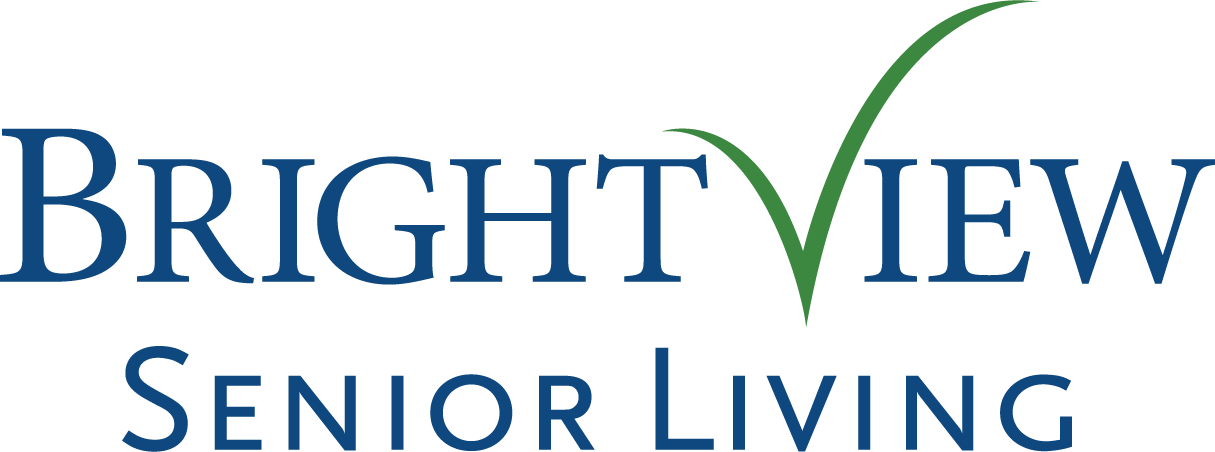Eating right is important at any stage in life. However, as we age, following certain healthy eating habits helps our bodies and minds stay strong and active. At Brightview Senior Living, our dining teams balances the nutrition needs of residents with seasonal menus and restaurant-quality dishes and service. Whether you're dining with us or at home, take into consideration the four tips below on healthy eating for seniors.
1. Encourage Adequate Hydration
Our bodies are about 60% water, which means we need to take in plenty of the clear stuff to keep our systems operating in tip-top shape. Even a 2% drop in your body water percentage can lead to performance issues and dehydration-related side effects and could prevent your body from:
- Efficiently flushing waste
- Transporting nutrients and oxygen to your cells
- Regulating blood pressure and heartbeat
- Cushioning your joints from shock and normal wear and tear
- Normalizing body temperature
- Balancing electrolytes
Experts recommend at least eight 8-ounce servings of water per day — more if you're an athlete or especially active. Beverages with extra salt and sugar are discouraged but not forbidden; those who love an extra soda or refreshing lemonade from time to time should balance out those drinks with another glass or two of water.
Turn hydration into a habit by making sure there is always water nearby. That may mean setting up a regular water delivery, refilling their fridge pitcher every time you're over or even putting a mini fridge filled with water bottles in their bedroom so they don't have to tackle the stairs every time they need a top up.
2. Set Them Up for Dietary Success
The National Council Aging has set up clear guidelines for senior nutrition, but for reasons ranging from transportation issues to financial constraints, our elderly population often settles for an unbalanced diet. Seniors should be eating a wide variety of food products, including:
- Lean protein
- Fruits and vegetables
- Whole grains
- Low-fat dairy
Personal needs related to conditions such as diabetes or high blood pressure also need to be taken into consideration.
Help out by setting up a meal-delivery service or ensuring residents in a senior community have access to a meal plan backed by a registered dietitian or nutritionist. Offerings should rotate on a regular basis to include a rainbow of produce, fish and red meat for omega-3s and iron and options for fiber, calcium and other key nutrients.
3. Switch out the Salt for Other Seasonings
Salt is the cornerstone of seasoning, but there are other ways to get flavor into your food without flirting with high blood pressure. The rel="noopener noreferrer" American Heart Association recommends a limit of 2,300 milligrams of salt per day with an ideal threshold of just 1,500 mg, especially for adults who already have high blood pressure. While that may seem like plenty, processed foods, table salt and even some prescription and over-the-counter medications can boost salt intake sky high before you know it.
Instead of watching your loved one douse their potatoes in table salt, introduce them to salt-free seasoning blends that taste delicious but won't exacerbate hypertension. If you're the one who's usually in the kitchen, try incorporating herbs and spices with their own positive health properties backed by science:
- Cinnamon: An antioxidant that helps combat inflammation, lower cholesterol and regulate blood sugar levels
- Sage: May help boost brain function, even in those already experiencing cognitive deficiencies
- Turmeric: A strong antioxidant linked to lower inflammation, arthritis relief, reduced risk of heart disease, lower cancer risk and improved brain function
- Ginger: Ideal for treating nausea caused by seasickness, indigestion and even chemotherapy, plus it also helps with inflammation and pain management
4. Emphasize Good Fats
Once upon a time, experts believed that fat was bad. Entire generations fell prey to low-fat diets that were full of nutrient-deficient foods. Sugar and carbs replaced fat, and a new problem was born. We now know that there are good fats and bad fats.
So-called bad fats are trans fats that can increase the risk of disease as well as saturated fats found in butter, cheese and red meat. Good fats are those labeled as monounsaturated or polyunsaturated, such as the kind found in olives, sesame seeds, peanuts, almonds, cashews, hazelnuts, sunflower seeds, flax seed, soybeans, fatty fish (salmon, sardines, tuna, trout, etc.) and derivatives thereof.
Help steer your loved ones toward good fats and away from the kind that can raise LDL cholesterol by switching out commercial baked goods, packaged snacks, fried goods, skin-on chicken, ice cream and excessive amounts of red meat in favor of healthier options, including plant-based meals, grilled or steamed fish, homemade salad dressing, olive dips and guacamole with veggie sticks and trail mix.
Brightview Senior Living builds, owns, and operates award-winning vibrant senior living communities in eight states along the East Coast: Connecticut, Maryland, Massachusetts, New Jersey, New York, Pennsylvania, Rhode Island, and Virginia. We offer senior Independent Living, Assisted Living, Enhanced Care, and Wellspring Village™, a specialized neighborhood for people living with Alzheimer's disease and other forms of dementia. Schedule a personal visit to experience our communities firsthand.

